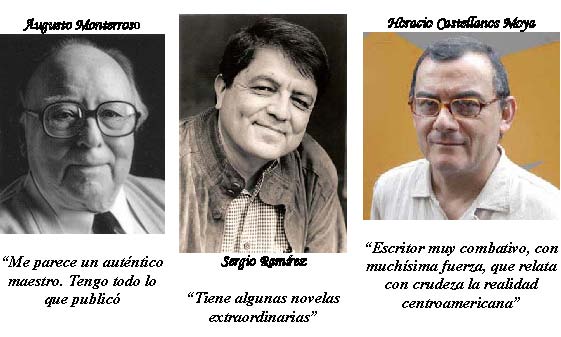El pasado viernes 15 de febrero nos acercamos al despacho del director de la Agencia, Juan López-Dóriga, para charlar sobre publicaciones de cooperación al desarrollo y sobre sus autotes literarios predilectos. Mª Carmen Díez-Hoyo, directora de la biblioteca de la institución, mantuvo con él una conversación que fluyó con naturalidad durante 15 minutos. Os invitamos a que escuchéis el resultado de dicha entrevista en la que nos descubrió su faceta de apasionado lector y coleccionista de libros.
pincha
Para escuchar la entrevista, activa el botón «play» del reproductor :
Para descargarla, pincha en el siguiente enlace :

El título, vamos a calificar «estrella», mencionado en la conversación, es: «Getting better: why global development is succeeding and how we can improve the world even more» de Charles Kenny, una obra publicada en Nueva York en el año 2011. Las palabras dedicadas por López-Dóriga a la «doctrina del desarrollo» incluidas en la composición de fotos precedente, vienen a propósito de sus comentarios sobre esta obra.
He aquí la descripción del libro incluida en Amazon:
«As the income gap between developed and developing nations grows, so grows the cacophony of voices claiming that the quest to find a simple recipe for economic growth has failed. Getting Better, in sharp contrast, reports the good news about global progress. Economist Charles Kenny argues against development naysayers by pointing to the evidence of widespread improvements in health, education, peace, liberty–and even happiness.Kenny shows how the spread of cheap technologies, such as vaccines and bed nets, and ideas, such as political rights, has transformed the world. He also shows that by understanding this transformation, we can make the world an even better place to live.That’s not to say that life is grand for everyone, or that we don’t have a long way to go. But improvements have spread far, and, according to Kenny, they can spread even further».
understanding this transformation, we can make the world an even better place to live.That’s not to say that life is grand for everyone, or that we don’t have a long way to go. But improvements
Fuente: http://www.amazon.com/Getting-Better-Development-Succeeding-And-Improve/dp/046503103X
understanding this transformation, we can make the world an even better place to live.That’s not
Aunque no menor interés demostró en sus comentarios sobre el libro: Impact investing : transforming how we make money while making a difference / by Antony Bugg-Levine & Jed Emerson, una obra que estudia la importancia del sector privado en el ámbito de la cooperación al desarrollo y la llamada «inversión de impacto».
La descripción incluida en la página web de Wiley es la siguiente:
A ground-breaking book on the transformative power of impact investing
This is the first book to chart the catalytic path of this new industry, explaining how it is and can be a positive disruptive force. It shows how impact investing is a transformational vehicle for delivering «blended value» throughout the investment spectrum, giving a single name to a set of activities previously siloed in enclaves, revealing how they are linked within what is becoming a new field of investing. Written by two leaders in the growing field of impact investing, the book defines this emerging industry for participants on all sides of the funding equation (investors, funders and social entrepreneurs).
Filled with illustrative examples of impact investing success stories
Reveals how the field can expand in order to address the most critical social and environmental issues of our day
Explores the wide-ranging applications of impact investing as well as entrepreneurial opportunities
The authors do not take a normative approach to argue how investors should behave like an investment guide might but show how entrepreneurial people and institutions are already offering an integrated alternative.
Otros títulos recientes de cooperación al desarrollo que hemos ido adquiriendo en la biblioteca a sugerencia de Juan López-Dóriga y que podéis encontrar en la colección son:
En la última parte de la entrevista citó varios autores, ya en el ámbito de la literatura, a los que considera grandes y admira desde hace años, varios centroamericanos y dos clásicos europeos del s. XX como son Orwell y Camus. De los centroamericanos que citó tenemos abundante bibliografía en la biblioteca hispánica que podéis encontrar en nuestros catálogos:
imagen

Finalmente, es posible encontrar en la biblioteca dos de las novelas más famosas (1984 y Rebelión
Finalmente, es posible encontrar en la biblioteca dos de las novelas más famosas (1984 y Rebelión en la granja; ésta última en una edición neoyorkina de 1972) del último autor citado por Juan López-Dóriga: George Orwell, de quien destacó el ensayo breve titulado «Politics and the english language” al que podéis acceder íntegramente a través de la siguiente imagen:
imagen




Al hilo de esta entrevista tan interesante, solo quería compartir el enlace de la guía de estilo de «the economist» http://www.economist.com/styleguide/introduction porque me encanta también como escribe George Orwell y Hemingway… y los textos bonitos y simples donde no sobra ni una letra … os dejo una reflexión que contiene la guía de estilo sobre los nombres arabes por si os gusta el humor inglés:
Arab words and names
The Arabic alphabet has several consonants which have no exact equivalents in English: for example, a hard t as well as a normal soft one, a hard s as well as a soft one, two different (one vocalised, the other not) th sounds. Moreover, there are three sounds–a glottal stop like a hiccup, a glottal sound akin to strangulation and a uvular trill like a Frenchman gargling–which have no equivalent except occasionally in the East End of London. Ultra-fastidious transliterators try to reproduce these subtleties with a profusion of apostrophes and hs which yield spellings like Mu’ammar al-Qadhdhafi. The risk of error and the sheer ugliness on the page are too great to justify the effort, so usually ignore the differences.
Publicado por M. A. | 4 de marzo de 2013, 3:55 pm